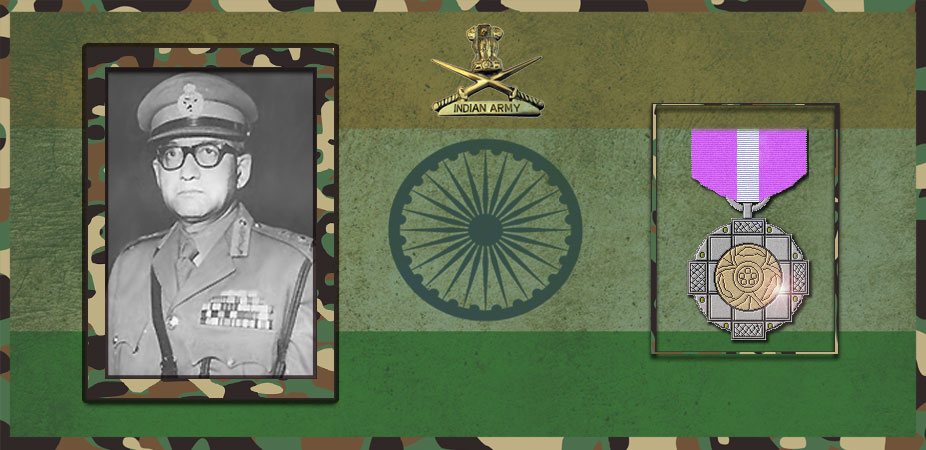Let's salute to our Indian Army together, We are proud to be Indian.
Let's salute to our Indian Army together, We are proud to be Indian.

General Gopal Gurunath Bewoor, Padma Bhushan, PVSM (11 August 1916 – 24 October 1989) was an officer of the Indian Army who served as the 9th Chief of Army Staff.In a long service spanning four decades, Gen. Bewoor saw action during World War II and later was involved in Indian Army operations during the 1965 as well as 1971 Indo-Pakistani war. He succeeded Field Marshal Sam Manekshaw as the Army chief in January 1973 and following his retirement from the army, served as the Indian Ambassador to Denmark till 1979. He was a recipient of the third highest Indian civilian honour of the Padma Bhushan.
Born at Seoni (now in Madhya Pradesh) on 11 August 1916, Gopal Gurunath Bewoor was the son of Sir Gurunath Venkatesh Bewoor ICS and Rukmini Bewoor. He followed his elder brother Madhav (who later died in action in World War II) into Prince of Wales Royal Indian Military College (RIMC), Dehradun in 1928 and later the Indian Military Academy. A part of the Kitchener section, Gopal was appointed Cadet Captain in 1934. He also won Lord Rawlinson’s trophy during this time.
Bewoor was commissioned a second lieutenant on the Special List, Indian Land Forces on 15 July 1937. On 10 August 1937 he was attached to the 2nd Battalion, Green Howards, and saw action during operations in Waziristan. On 10 August 1938 he was admitted to the Indian Army and posted to 5th Battalion 10th Baluch Regiment (now 12 Baloch), with which he saw action in Burma. His seniority as a second lieutenant was antedated to 30 August 1936 and he was promoted lieutenant 30 November 1938. In July 1945, he was transferred from the 5th Baluch and went on to attend the Staff College course at Quetta, and then he was appointed as the Under Secretary (Military) to the Viceroy’s Coordination Council. He was the only Indian officer to have achieved this feat.
At Independence in 1947, Bewoor was the Secretary of the Army Partition Committee in 1947, which determined the allotment of weapons, equipment and regiments that were to remain in India or to be allotted to Pakistan. Since his parent regiment – the Baluch – went to Pakistan, he was transferred to the Dogra Regiment and promoted to lieutenant colonel in December 1947. With a view to imparting basic military training to school and college students, he was appointed as the Director of the NCC (National Cadet Corps) in April 1948 with the rank of full colonel.
He served as the Honorary Colonel of the Dogra Regiment up to 11 August 1979. After retirement, he served as the Indian Ambassador to Denmark, from February 1976 to March 1978. He served as a member of the Senate of the University of Pune, for two years from August 1979 onwards. He was also on the Board of Directors of Kirloskar Oil Engines & Vickers Sperry of Pune. Besides, he was often invited to give talks on leadership and military matters by various educational societies. He died on 24 October 1989.
The street in Koregaon Park, Pune where the general lived after retirement is named General Bewoor Path after him.